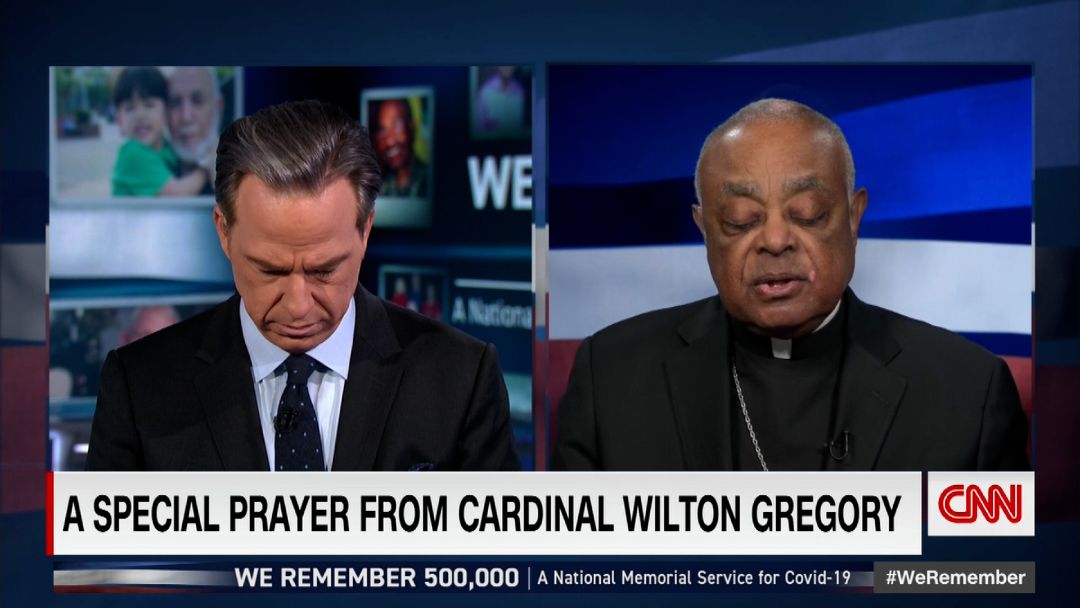(JTA) — Jake Tapper wants to make something clear, but the more he explains, the harder it is. That’s unusual for Tapper, an explainer par excellence.
The CNN anchorman is explaining a tweet because who isn’t these days. But he’s also explaining Jewish, or Jewish American, or Jewish at the nexus of celebrity and politics and the culture. That’s the kind of explanation that will kill you every time however adept you are at explaining simpler things like, say, American crisis and democracy and accountability.
Tapper explains Jewish as a matter of course from a powerful platform, and he has a keen ear for anti-Jewish bigotry, wherever it originates.
“If you mention me quoting Mishpatim in the piece,” Tapper tells a Jewish Telegraphic Agency reporter, meaning this story, “just note that it was my nephew’s Torah portion, and he was being bar mitzvah the next day, and despite some of the attacks that came my way, I wasn’t mocking David Schoen’s faith. I was quoting that biblical verse, with all earnestness.”
The tweet in question was on Feb. 12, the second to last day of former president Donald Trump’s Senate trial on charges that he spurred the deadly Jan. 6 insurrection at the U.S. Capitol.
It was a Friday afternoon and Shabbat was approaching. Tapper had explained to his 3.3 million Twitter followers some of the Jewish practices that Trump’s lawyer, David Schoen, was following: Schoen would not be working past 5:24 p.m. that day because he is a Sabbath observer, and likely covered his head while sipping from a tiny plastic bottle of water because saying the relevant blessing required it.
Then at 5:25 p.m., a minute after Shabbat began in Washington, D.C., Tapper tweeted this:
“Trump attorney David Schoen has left the Senate to observe the Sabbath.
At synagogue tomorrow, he will hear the reading from the Torah of:
Mishpatim
מִשְׁפָּטִים
Rules”
And then at 5:27 p.m., this:
“Exodus 21:1-24:18 includes:
‘You shall not spread a false report. You shall not join hands with a wicked man to be a malicious witness. 2 You shall not fall in with the many to do evil, nor shall you bear witness in a lawsuit, siding with the many, so as to pervert justice’”
The tweet drew anger from those on the right who saw in Tapper’s Torah lesson an attack on Schoen’s religion.
“This is disgustingly low, even for @jaketapper,” tweeted Boris Epshteyn, who headed Trump’s Jewish outreach during the last campaign. “How can @CNN be ok with their anchor targeting the religion of an Orthodox Jewish man based on who he chooses to represent as an attorney??”
Faye Hausendorff of Baltimore tweeted this: “At a time when visibly Jewish people are in danger constantly, Jake ‘the adult’ Tapper thought it was a good idea to attack Trump’s Orthodox Jew lawyer by weaponizing his religion against him. And he did so at a time when he *knew* the lawyer could not respond.”
The rancor and Tapper’s efforts to tamp it down weeks after the fact is not his usual space. At 51, Tapper has reached a rare sweet spot for anchors, having developed a reputation as a voice of reason who can be counted on to give the business to left, right and center, the man who distills our collective anger into reflection, our grief into mourning, our elation into pride.
What makes Tapper so familiar for many Jews is how he weaves into this persona, this collective reflection of how so many Americans see themselves, an unabashed Jewish sensibility. CNN tapped Tapper to anchor the Feb. 22 marking of the 500,000th U.S. death from the coronavirus, and he brought onto the show a rabbi, Anne Brener, to explain a phrase that he had made familiar.
“There’s a Jewish expression of condolence that I use every time I do an obituary on my show, which I had been doing, kind of doing every day, because of COVID,” Tapper said. “The expression is ‘may his or her memory be a blessing.’ What do we take from those words?”
Brener explained how painful memories evolve into blessings over time. Tapper then asked the rabbi to lead a prayer for the dead.
His followers on Twitter often ask him about the phrase.
“If a non-Jewish person uses the phrase ‘may their memory be a blessing,’ would that be considered insensitive appropriation?” a Kentucky tweeter, Missy Hall, asked Tapper last year after he tweeted the blessing to a colleague, Soledad O’Brien, who had lost a friend to a car crash. “I think it’s a beautiful sentiment, but I don’t want to offend by using it.”

Tapper prays on CNN with Cardinal Wilton Gregory, the archbishop of Washington, to mark the 500,000th COVID death in America, Feb, 22, 2021. (CNN)
Speaking to JTA, Tapper said his use of the phrase was a matter of Jewish pride, but also an offering to non-Jews, and he made a seasonal comparison (the interview took place on Purim).
“I’m aware and proud of its Jewish roots, but I also get it’s not alienating to a non-Jew,” he said. “It’s like — I’m trying to think of a metaphor — it’s like sharing hamantaschen.”
Tapper is one reason why, after decades of taking hits from Fox, CNN became a ratings leader during the Trump years, especially for the key 25- to 54-year-old demographic. In January, Tapper crushed the competition in his 4 p.m. slot with “The Lead.” CNN doubled the show to two hours and made Tapper the lead anchor for all Washington events. He also will continue to anchor his Sunday morning talkfest, “State of the Union,” with Dana Bash coming aboard.
Tapper ascended during the Trump years as the no-nonsense dispenser of the president’s lies. A 2017 interview with Trump spokeswoman Kellyanne Conway earned him an Emmy nomination for outstanding live interview. Trump was undermining the media, and Tapper would not let Conway change the subject.
“When it comes to the Trump administration, I would much rather be covering immigration,” he said. “I would much rather be covering trade. And I would much rather be covering draining the swamp and counterterrorism. But instead, every day there are these sprays of attack and sprays of falsehoods coming from the White House. It would be better if they were not coming from the White House for me and for you.”
“Agreed,” Conway responded — a response that Tapper later told NPR that he was pleased to extract.
“Saturday Night Live” found the exchange sexy and dangerous, and turned it into a sketch that made Conway into Tapper’s “Fatal Attraction” stalker.
In a 2018 interview with Stephen Miller, Tapper cut off Trump’s pugnacious immigration adviser for not answering a question about whether the president’s outrageous tweets were helping or hurting his critics’ case that he was not emotionally up to the job.
“I’ve wasted enough of my viewers’ time,” Tapper said. When Miller refused to leave, Tapper had him escorted out of the studio.
Tapper anchored the desk throughout the Jan. 6 riot at the Capitol, and his succinct encomiums summed up the national trauma.
“We are witnessing an attempt at sedition,” he said. “It is an embarrassing, dangerous, frightening spectacle that you’re witnessing.”
Tapper is an alumnus of the Akiba Hebrew Academy in Philadelphia (now the Jack M. Barrack Hebrew Academy) and says it helped shape his passion to challenge authority. It’s not a coincidence, he said, that the school graduated journalists like himself, Eli Lake of Bloomberg News, Ami Eden of 70 Faces Media (JTA’s parent company) and Mitch Albom.
“Jewish education gave me a lot of ways, one of which was obviously a respect for faith — not just for Judaism, but for all faiths, Christianity, Islam, everything — and then I think also just the tradition of debate that I learned, both in the school itself but also by reading the Talmud,” he said. “What I appreciated at the time was how much we were encouraged to consider other points of view.”
It’s a skill he and his bosses are eager to show applies across the spectrum. CNN last week promoted Tapper’s “uncomfortable question” for President Joe Biden about not taking action against Saudi Crown Prince Mohammed bin Salman for his role in the murder of a Washington Post journalist, even though U.S. intelligence has affirmed bin Salman ordered the killing.
One of Tapper’s first interviews with a Biden official was with Denis McDonough, the Veterans Affairs secretary. Tapper started by replaying a confrontation the two had in 2014 when McDonough was the chief of staff to President Barack Obama, whose administration was beset by scandals surrounding care for veterans.
“We will hold them to the same standard,” Tapper said. “Now obviously there’s a tremendous difference, I mean at least as of right now,” because the Biden administration is still young “but we’ve been covering the debate over opening schools rather aggressively.”
(Tapper, whose mother worked as a psychiatric nurse at a V.A. hospital, and who himself covered the wars in Iraq and Afghanistan, champions veterans. He has written a book, “The Outpost: An Untold Story of American Valor,” about the Afghanistan war, and at Salon was an early and prescient skeptic of the Bush administration’s case for the Iraq War.)
On Wednesday, Tapper excoriated Biden on Twitter for not having a news conference 42 days into his presidency. Someone replied that Tapper must “hate” Biden, and Tapper quoted the tweet, saying, “A glorious take. Cast it in gold, sacrifice a lamb to it.”
Tapper’s quest to keep all sides accountable extends to his Jewish antenna. Over the years he has called out insensitivity to Jews by Congress members of both parties, including Mary Miller, an Illinois Republican, and Rashida Tlaib, a Michigan Democrat.
He picks up on subtle signs of bias that elude those who are not immersed in Jewish issues. In November, after the Biden transition team named Antony Blinken as secretary of state, Tlaib warned Blinken on Twitter not to question her right to boycott Israel. It was an odd tweet: A secretary of state would have nothing to say about a U.S. lawmaker and boycotts, and Blinken was no more or less outspoken than anyone on the Biden team, including the president himself, on the Boycott, Divestment and Sanctions movement targeting Israel.
Blinken is, however, Jewish, and Tapper wondered: “Blinken and Biden are both on the record opposing efforts to punish/sanction BDS (though they also oppose BDS) so I’m not sure what it is about Blinken that would prompt this tweet.”
On a panel in December 2019, after a year that included deadly attacks on Jews carried out by white and Black nationalists, Tapper wondered whether the white supremacist attacks were getting more intensive coverage. It wasn’t surprising: Tapper, more than most media observers who speak out against anti-Semitism on the right, has also repeatedly called out anti-Jewish sentiments expressed by Black and Muslim figures. (His frequent and vocal criticism of Louis Farrakhan, the notoriously anti-Semitic leader of the Nation of Islam, spurred public criticism of Women’s March organizers and drew a Twitter rebuke from the rapper Ice Cube.)
Tapper also said he saw what was coming on Jan. 6, and suggests why: Radicalization and lies are stops on a continuum familiar to Jews.
“What we all feared was going to happen, happened,” he said. “There’s anti-Semitism in so much of it. Not all of it, but it’s so much of it. It’s not that long a path from lying about the election to lying about QAnon. It’s really not that far, and then go from QAnon to age-old anti-Semitic nonsense, it’s also not that long a path.”

Tapper poses in the CNN studio in Washington, D.C. (CNN)
Tapper, whose prior gigs include ABC News and Salon, started in journalism in 1998 at The Washington City Paper, an alternative weekly. His first breakout piece described his date with Monica Lewinsky a week before she became the center of a world-shaking presidential scandal, and it makes for irreverent reading, but is also flecked with, well, Jewish sensibilities.
Tapper wrote that he usually loves “this shit” — scandals — unlike his brother, who he said had returned from a year studying in Israel “disgusted” by tabloid fodder. (Aaron Hahn Tapper is now a professor of Jewish studies at the University of San Francisco.) But Lewinsky’s case, and the details of her affair with Bill Clinton, made Tapper “queasy,” he wrote, because just a couple of weeks earlier they made eyes at a bar.
She was “cute, if a little zaftig. And friendly. And nice,” he wrote about Lewinsky. And she was someone you could take home to mom. “My mom, in fact, would love her. Dad, too. She’s Jewish, for one thing.”
(Here’s a scoop: One reason Tapper asked out Lewinsky was that she was Jewish. “I don’t think I had to be told. I mean, her name was Monica Lewinsky. And OK, she looked like a pretty young Jewish woman, so that was definitely part of it.”)
The piece is irreverent, as was much of Tapper’s Salon output. Tapper is a published political cartoonist and has written two 1960s-era mystery novels featuring a Nick and Nora-like crime-busting couple. (One gets tired writing about how tireless Tapper appears to be.) Tapper was known at Akiba as a prankster — he concealed a penis with an equally off-color message in a prank yearbook ad — but he since made nice, apologizing to a teacher and delivering a commencement address.
“I was a teenager, you know, I was rebellious and a pain in the butt and anxious to get on with my life and you know I have a very nice relationship with those teachers and the school right now,” he said.
“I’m 51, almost 52 now and I have a wife and two kids,” Tapper said. ”And, you know, I’m not a young rebel anymore. I’m …” he hesitated as if it just dawned on him — “old. And while I still hope to use the platform to express the same indignation, you know, maybe my language is a little cleaner. You can find stories that I wrote for City Paper or Salon in which I am challenging orthodoxies on the left as well as the right. I don’t think I’m that different in hopefully calling out hypocrisies, wherever they are. And indecencies, but I do hope, maybe I’m doing so in a way that reaches more people.”
Which is why he wants to make that tweet about David Schoen and Mishpatim clearer. Would Tapper have raised Misphatim and its warning not to join “hands with a wicked man to be a malicious witness” if Trump’s lawyer was not Jewish?
“No, the point was that here was an observant Jew, and his observance had become something that was in the public sphere,” Tapper said. “I mean when he said that he didn’t wear his yarmulke in the Senate because he feared it might offend somebody, that made me really sad on his behalf. Because, you know, there’s nothing embarrassing about wearing a yarmulke.
“But that said, he left the Senate to go observe the Sabbath and he was going to be reading from a biblical text that talks specifically about the importance of being honest.”
Tapper doesn’t say it, but he and Schoen occupy the same spotlight. They are on a national stage at a moment of crisis, and they are presenting as Jewish. And that brings responsibility.
Being Jewish is why Tapper agreed to this interview. It’s part of what motors him. His publicist tells JTA afterward that his daughter celebrated her bat mitzvah last summer virtually, and that he has started teaching his 11-year old son Hebrew. It’s in how he honors his mother, the retired V.A. nurse. It’s in the way he consoles in our moment of grief, the way he celebrates (with a heartfelt “mazel tov”) in our moments of joy, the way he condemns in our moment of terror.
And it’s why, even though his Jewish associations and priorities have changed over time, his values have not.
Tapper was at first a member of Adas Israel, D.C.’s Conservative movement seen-and-be-seen shul, but he moved to Temple Micah, a Reform synagogue, where he says his non-Jewish in-laws were made to feel more welcome.
“My level of [Jewish] education is much more so than my family’s,” he said. “My kids go to Hebrew school, but they don’t go to [Camp] Ramah [as Tapper did] or a Jewish day school. So the Reform synagogue that we go to is better for us also.”
Temple Micah is also at the forefront of social action in D.C.’s Jewish community, which appeals to Tapper’s 13-year-old daughter, who is named for a suffragist.
“They provide housing for survivors of domestic abuse. I mean it’s just a place where we actually see in action everything I learned about when I was in junior high, in high school — all those Jewish values,” Tapper said.
He recalls hearing more in high school about other values.
“I don’t mean this in a critical way, but a lot of Jewish education when I was growing up was about Israel and the survival of Israel and the importance of Israel,” Tapper said, adding that he’s been to the country countless times, including a junior year abroad stint at Tel Aviv University.
“And that’s great and wonderful. But seeing Jewish values also applied to life in the United States is very meaningful to me.”
JTA has documented Jewish history in real-time for over a century. Keep our journalism strong by joining us in supporting independent, award-winning reporting.






